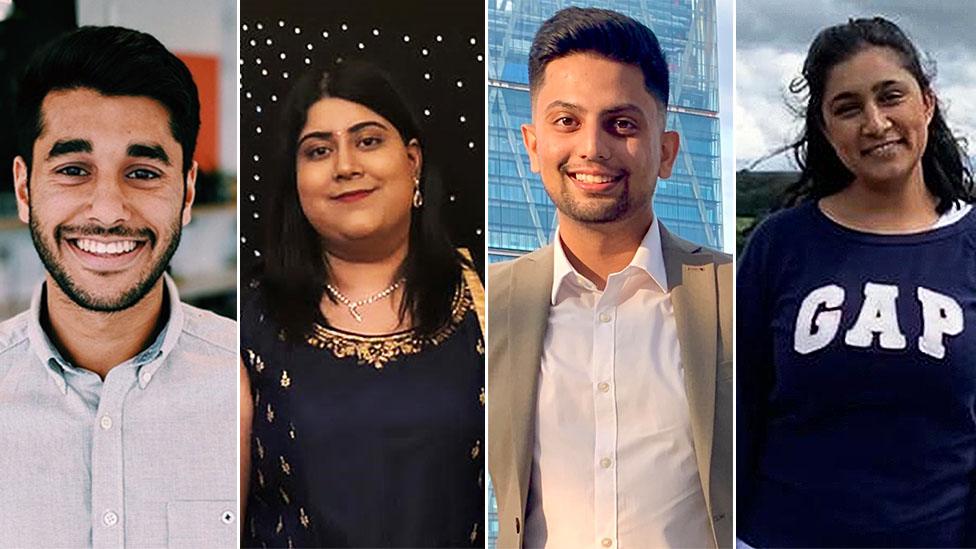'I got dressed up even though I had nowhere to go'
- Published
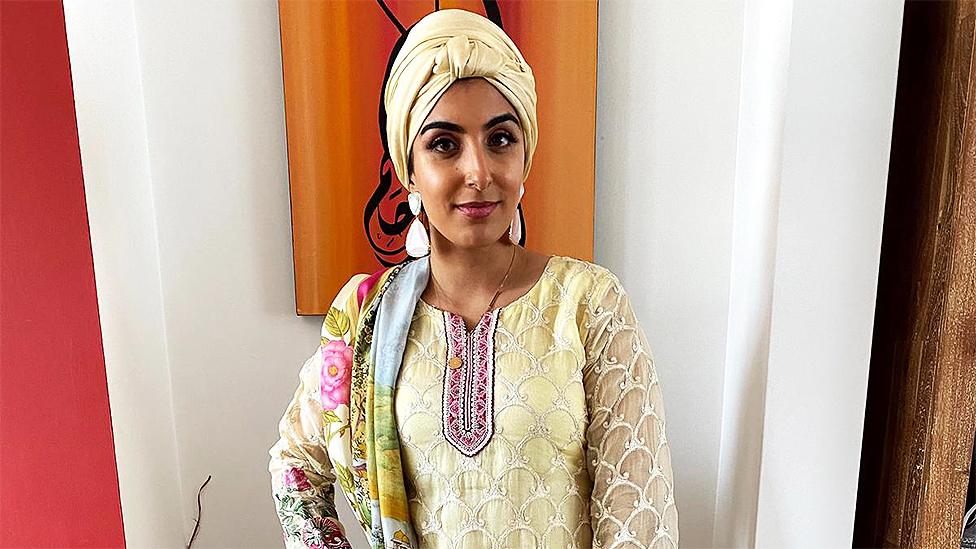
Romana stuck to tradition and dressed up for Eid even though she "had nowhere to go"
It's supposed to be the most wonderful time of the year.
But news of Christmas restrictions being tightened and a new tier four being introduced in some areas England has taken away the bright spot many hoped to end a dark year with.
That doesn't mean it has to be a festival without enjoyment, though - as those celebrating Eid, Hanukkah and Diwali this year have shown.
Radio 1 Newsbeat has been speaking to some of those people to find out how you can still have a Christmas that puts a smile on your face.
Stick to traditions
For Romana Shah, the "whole idea" of Ramadan and Eid is similar to Christmas - being centred around community and lots of people coming together.
But this year, with that not possible, the 28-year-old from Sheffield tried to keep the festive spirit flowing by staying true to traditions - and she suggests the same for Christmas.
"I got really dressed up like every year. Even though I had nowhere to go, just to make it feel like it was a different day and a time for celebration."
Food always plays a big part in celebrating, so it was no different this year.
"I made sure I was eating the lovely food we normally eat on Eid, like curries and biryani. So even with less people, it's still trying to do things on a massive scale."
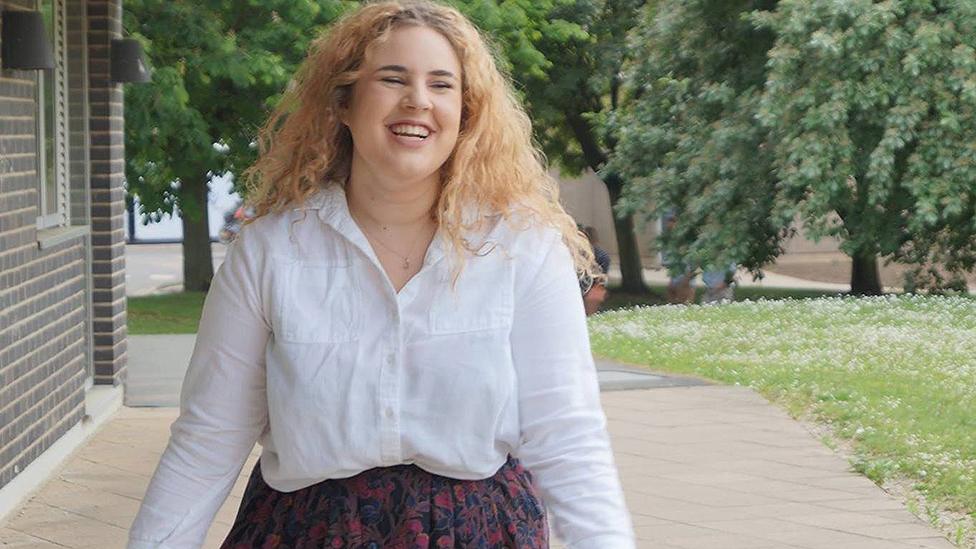
Hannah says it's "about making the best of what you have"
And that's something Hannah Radley agrees with because "it helps to create those links between generations".
Hannah is Jewish and experienced a more limited celebration of Passover, Rosh Hashanah and Hanukkah this year.
"Even though you might not be able to share it with your family, if you eat a certain kind of food on Christmas, do that by yourself," the 23-year-old says.
"On Seder night [a special service at the beginning of Passover], we did that and it felt like we were carrying on tradition, which is what festivals are about."
And it's important to maintain traditions, even if you can't see wider family and do everything the same way.
"On Hanukkah, we tried to keep it special by decorating the whole house and lighting candles. We still gave presents to each other and immediate family."
But while tradition is important, do something new too, Hannah says, "to get that feeling you would from a normal celebration".
For her, that was going on a long walk in North London for a "restoring and reflective" time - and seeing others doing the same helped her feel a spirit of togetherness.
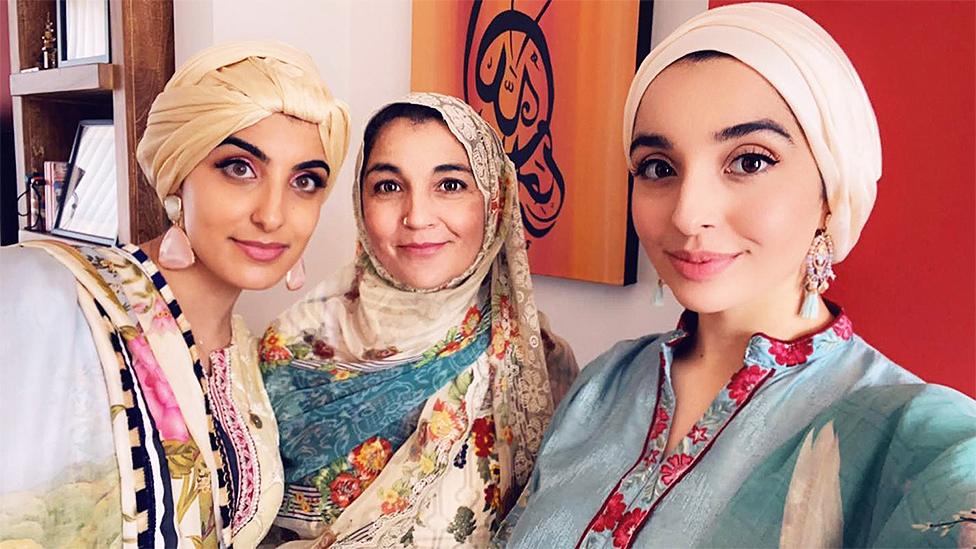
"It's really important to feel that mood of celebration with my family," Romana says
Romana says to "make things fun and less like a lockdown".
"Look online for different ways of being creative, use things like Instagram and TikTok for inspiration to see the different things people are doing."
She did just that, using TikTok during festivities to entertain her family.
"They had lots of clips about how people were going to celebrate. And I felt down about not seeing my grandparents."
Among the different videos she created was the 'Don't Rush' challenge.
"I didn't dare to post it for the whole world to see. But I sent it to my friends and family to take the mick out of me."
"It's better to laugh through the difficult times because it makes it a lot easier."
'Zoom can be your best friend'
Making the most of the online world is a way to feel closer to loved ones, according to Harish Malhi.
With the typical Diwali of food, fireworks, family visits and a temple trip off the table, Harish says it was important to spend time with family members - even if it meant it being online.
The 25-year-old Londoner runs an online cooking platform called Diaspo which he says created a "sense of community" in the absence of meeting people on the special day.
"So people can have the smell and tastes they'd usually have."
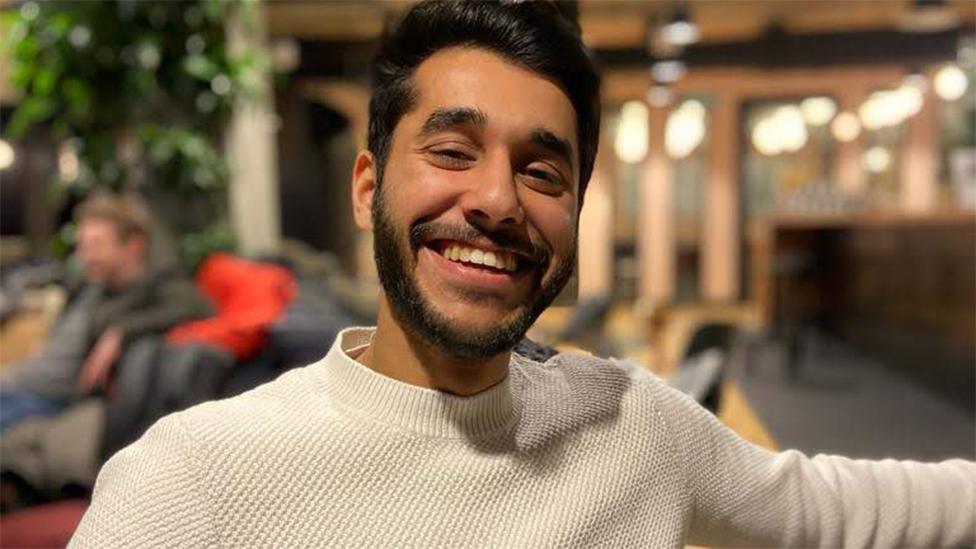
Harish's highlight was seeing family, friends "and even people I don't know" eating and cooking together
Harish says "we're all feeling hard done by" but that it's important to "make the most of the situation".
"Organise events, online classes, calls with family and friends that replicate the experience you'd usually have."
He adds it's very easy to jump on a zoom call and play the games you normally would - but virtually.
"It takes a bit more effort than in real life, but it's the way we can really feel connected to our community."
"You can still have the jokes and laughter, but through a screen."
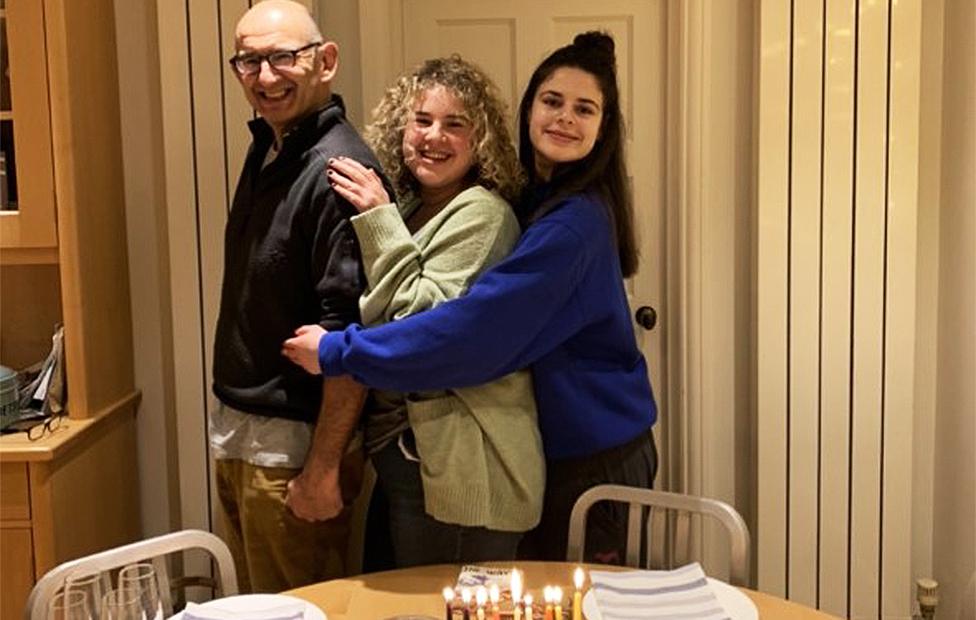
Hannah with her sister and Dad on Hanukkah
Hannah says "Zoom can be your best friend, but it's about channelling that properly."
"It's unrealistic to think everyone can have a three-hour meal on Zoom, but maybe have a drink with people you would normally celebrate with or open presents together."
Romana feels "we're so lucky" to have technology to connect people who are apart.
"I know people have Zoom fatigue, but it's still a way of connecting. We didn't have this years ago."
"It's important to count your blessings," she adds.


Follow Newsbeat on Instagram, external, Facebook, external, Twitter, external and YouTube, external.
- Published23 December 2020
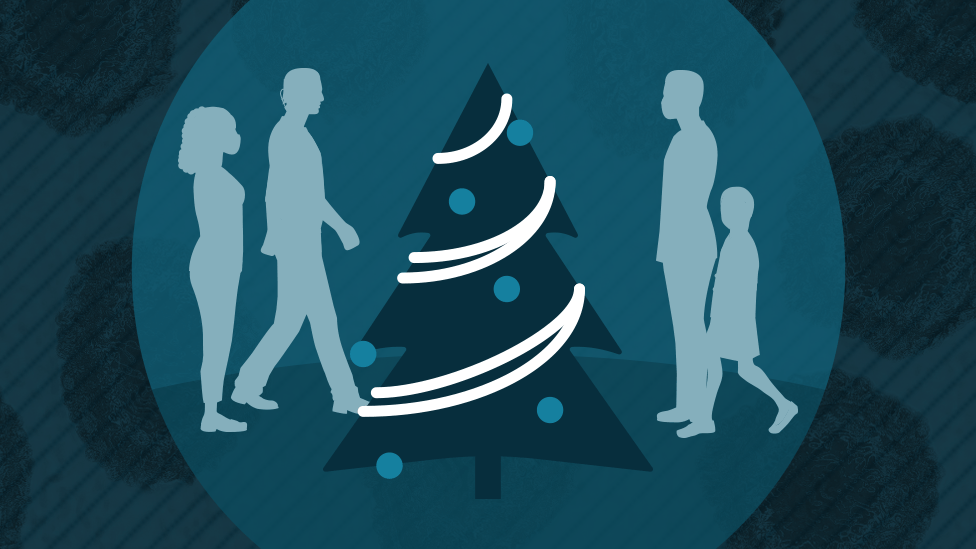
- Published14 December 2020
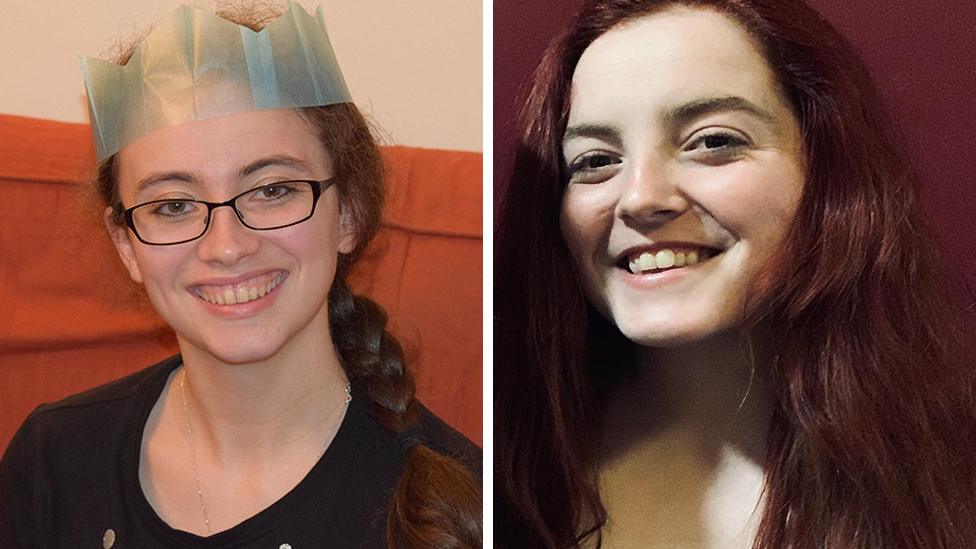
- Published10 December 2020
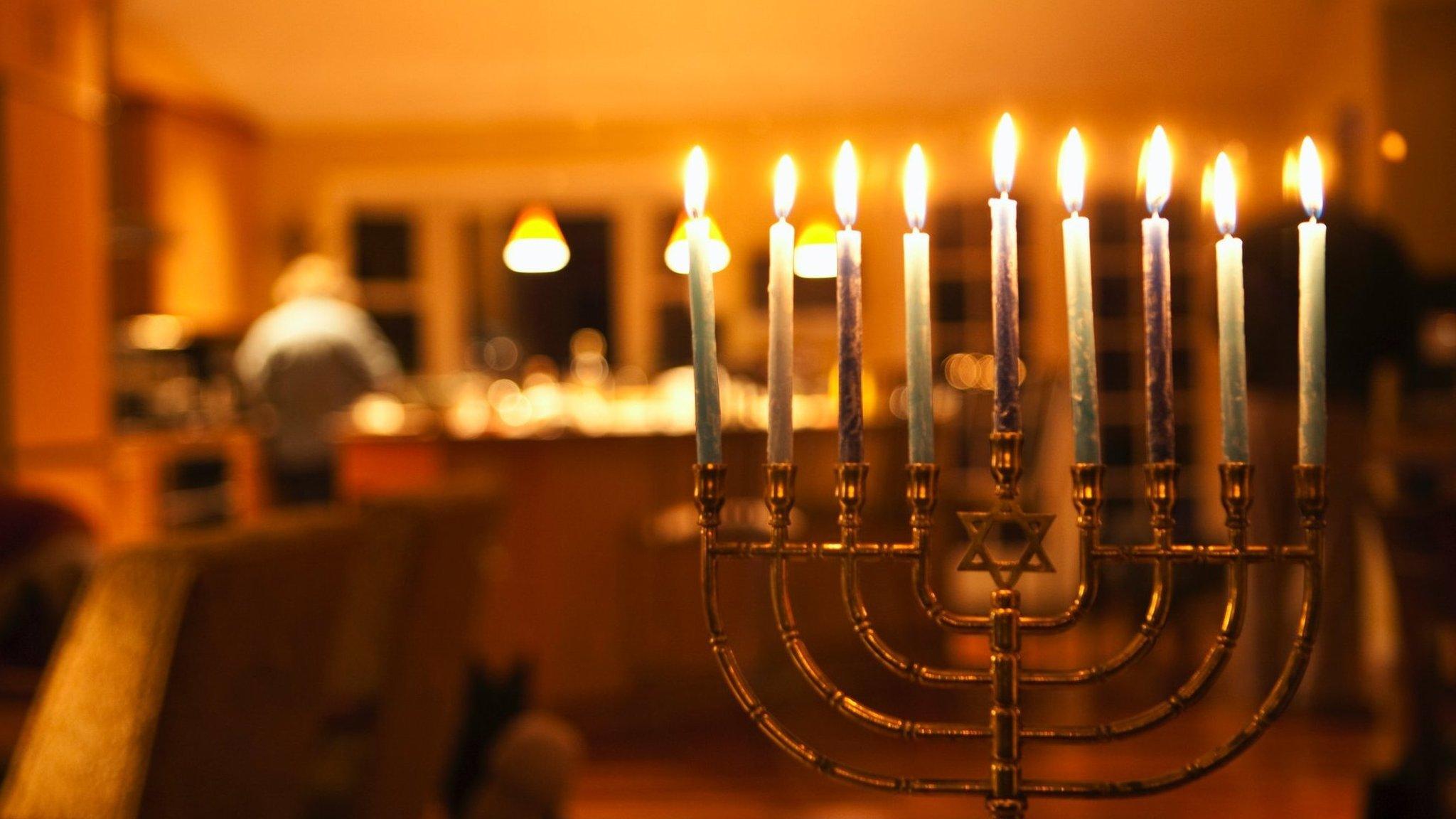
- Published9 May 2020
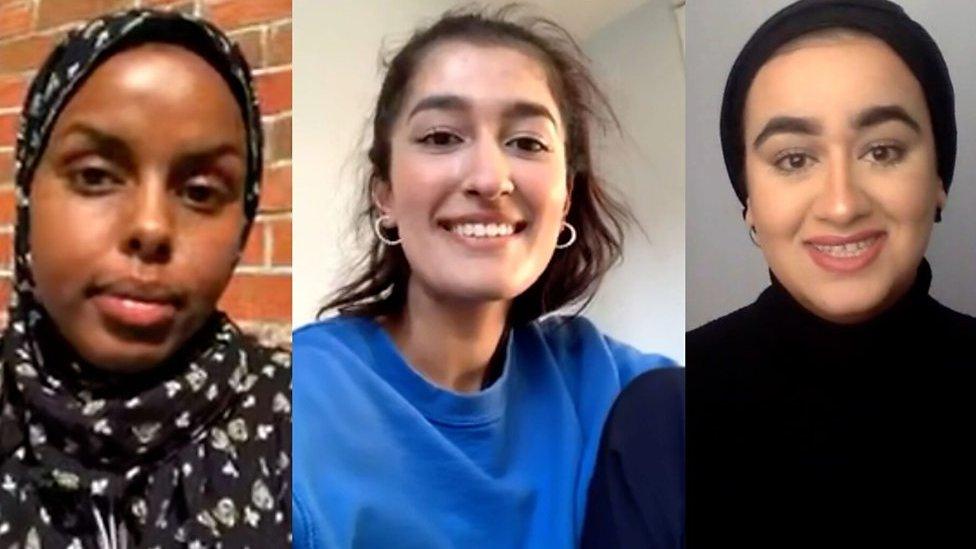
- Published24 June 2020
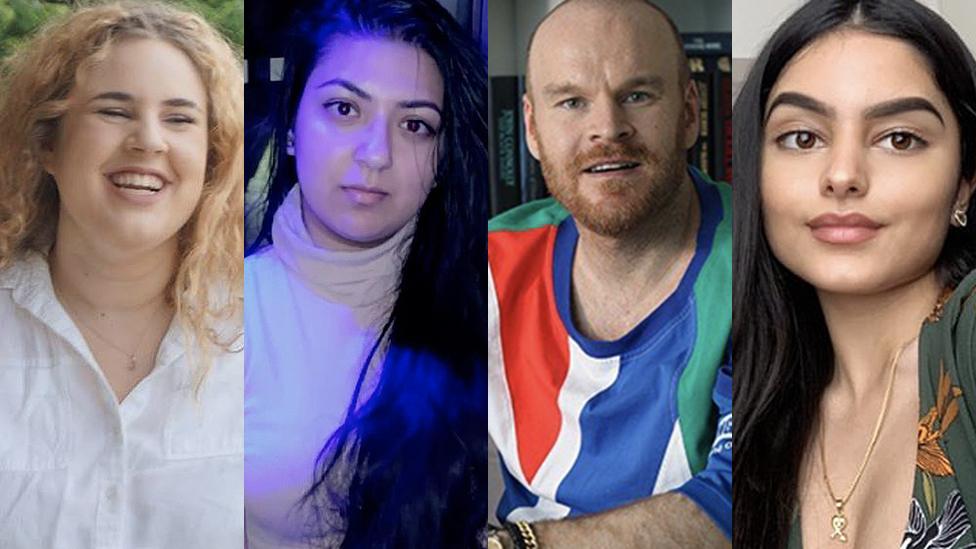
- Published13 November 2020
